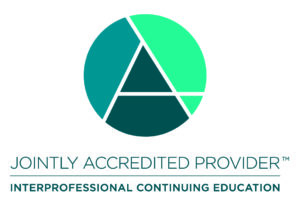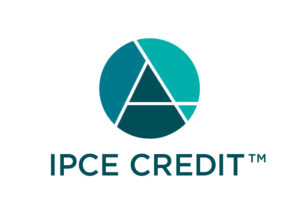Praxis Continuing Education and Training
Focused ACT for Brief Interventions
Kirk Strosahl, PhD & Patricia Robinson, PhD
16 CE credits available
Please read the complete course information below prior to registering.
Target Audience:
This course is for psychologists, social workers, nurses, physicians, counselors, and other healthcare professionals working in private practice and primary care, treating adults with anxiety, depression, and life stresses. Participants should have a basic understanding of ACT principles and should ideally have read at least one book on Brief Interventions or ACT. This is a beginner-level activity.
Schedule: (16 hours total)
1. Introduction of FACT foundations, including theory, measurement, and assessment (143 Min)
2. Bridging assessment, conceptualization, and intervention (147 Min)
3. Promoting client behavioral variability and clinician skill development (109 Min)
4. Exploring the FACT flow in initial and follow-up visits, Finer Points of FACT Work (123 Min)
5. Using Metaphors in FACT Work (91 Min)
6. Serving complex patients, growing clinician resilience (197 Min)
7. Using FACT with Children and Adolescents (75 Min)
8. Dealing with resistance in clients and strategies for building willingness and motivation (75 Min)
Overall Objectives:
At the conclusion of this course, participants will be able to:
- Describe the goal of delivering FACT to clients
- Define experiential and behavioral avoidance
- Describe the FACT approach to functional assessment
- List questions of the Contextual Interview Checklist
- Use the Four Square to sort patient behaviors in categories of workable/supporting life values and not-working/attempting to control or avoid problems
- Use the Pillars Assessment Tool to identify one or more intervention targets (open, aware, engaged)
- Use the confidence question to evaluate a behavioral experiment and to inform any needed changes to the proposed experiment
- Ask the helpfulness question at the end of a FACT visit and explore the client’s response
- Identify differences between the steps of an initial and follow-up FACT visit
- Use question lists to guide exploration of the two essential areas in FACT follow-up visits
- Discuss methods for engaging clients who do not complete planned behavioral experiments
- List 6 clinician qualities that support FACT work
- Describe the value of using metaphors in FACT work
- Discuss how to use both the Bull's-eye and Life Path Intervention with clients
- Describe how FACT may be helpful to clients facing greater complexity
- Provide examples of how a FACT clinician would respond to a client who returned for follow-up and reported thoughts of suicide
- Explain how greater psychological flexibility can support clinician resilience
- Use the Focused Acceptance and Commitment Therapy Self-Assessment Tool (FACT-CAT) to identify targets for future learning
Grievance Procedures for CE Activities
Should a participant in the course be unsatisfied with the course, the participant should immediately contact our customer support team to file a grievance. Within five days, a customer support team member will contact the participant by email and/or phone and attempt to resolve the issue.
We will investigate and assess the issue from the perspective of the participant and every effort will be made to resolve the issue. If the issue is not resolved to the satisfaction of the participant, the participant will be offered a refund per the Refund and Cancellation Policy guidelines.
To file a grievance, please contact us at courses@praxiscet.com.
ADA Accommodations
To request accommodations for disabilities, please contact Praxis Continuing Education at courses@praxiscet.com.
Contact Information:
The Focused ACT for Brief Interventions team can be contacted at courses@praxiscet.com
Praxis Continuing Education
5674 Shattuck Avenue
Oakland, CA 94609 USA
CE Information:
This non-live online course is sponsored by Praxis Continuing Education and Training and is approved for 16 CE Hours by the organizations listed below. Praxis CET maintains responsibility for the program with the CE approvals outlined below:

Joint Accreditation: In support of improving patient care, Praxis Continuing Education and Training, Inc. is jointly accredited by the Accreditation Council for Continuing Medical Education (ACCME), the Accreditation Council for Pharmacy Education (ACPE), and the American Nurses Credentialing Center (ANCC), to provide continuing education for the healthcare team.
IPCE: This activity was planned by and for the healthcare team, and learners will receive 16 Interprofessional Continuing Education (IPCE) credit for learning and change.
Interprofessional Continuing Education (IPCE) credit for learning and change.
Nursing: Praxis Continuing Education and Training, Inc. designates this activity for a maximum of 16 ANCC contact hours.
Physicians: Praxis Continuing Education and Training, Inc. designates this enduring material activity for a maximum of 16 AMA PRA Category 1 Credits™. Physicians should claim only the credit commensurate with the extent of their participation in the activity.

Psychologists: Continuing Education (CE) credits for psychologists are provided through the co-sponsorship of the American Psychological Association (APA) Office of Continuing Education in Psychology (CEP). The APA CEP Office maintains responsibility for the content of the programs.
Social Workers: As a Jointly Accredited Organization, Praxis Continuing Education and Training, Inc. is approved to offer social work continuing education by the Association of Social Work Boards (ASWB) Approved Continuing Education (ACE) program. Organizations, not individual courses, are approved under this program. Regulatory boards are the final authority on courses accepted for continuing education credit. Social workers completing this course receive 16 clinical continuing education credits.
Drug and Alcohol Counselors: This course has been approved by Praxis Continuing Education and Training, Inc. as a NAADAC Approved Education Provider, for 16 CE hours. NAADAC Provider #165310, Praxis Continuing Education and Training, Inc. is responsible for all aspects of its programming.

National Counselors: Praxis Continuing Education and Training, Inc. has been approved by NBCC as an Approved Continuing Education Provider, ACEP No. 6759. Programs that do not qualify for NBCC credit are clearly identified. Praxis Continuing Education and Training, Inc. is solely responsible for all aspects of the programs.
NY Counselors: Praxis Continuing Education and Training, Inc. is recognized by the New York State Education Department's State Board for Mental Health Practitioners as an approved provider of continuing education for licensed mental health counselors #MHC-0198.
NY Social Workers: Praxis Continuing Education and Training, Inc. is recognized by the New York State Education Department's State Board for Social Work as an approved provider of continuing education for licensed social workers #SW-0467.
NY Psychologists: Praxis Continuing Education and Training, Inc. is recognized by the New York State Education Department's State Board for Psychology as an approved provider of continuing education for licensed psychologists #PSY-0002.
NOTE: Many state boards accept offerings accredited by national or other state organizations. If your state is not listed, please check with your professional licensing board to determine whether the accreditations listed are accepted.
CE Course Launch Date: 2/2021
Expiration Date/Next scheduled review date: 2/2024
Disclosure of Relevant Financial Relationships
Praxis Continuing Education and Training is responsible for the content, quality, and scientific integrity of all CE activities certified for credit. When an educational activity is offered for medical (CME), Nursing (ANCC), and/or Psychology (APA) continuing education credit, participants must be informed as to the source, amount, nature, and disposition of any funding used to support the activity, whether in the form of educational grants, cash contributions, or in-kind contributions. Individuals in a position to influence course content must also disclose whether they have one or more relevant financial relationships with ineligible companies.
We define ineligible companies as those whose primary business is producing, marketing, selling, re-selling, or distributing healthcare products used by or on patients. There is no minimum financial threshold; individuals must disclose all financial relationships, regardless of the amount, with ineligible companies. We ask that discloses are made regardless of whether the individual views the financial relationships as relevant to the education. For more information on the Standards for Integrity and Independence in Accredited Continuing Education, please visit accme.org/standards.
All those in a position to control the content of an education activity are asked to disclose any relevant financial relationships they have with any ineligible companies.
There is no commercial support for this activity.
None of the planners or presenters for this educational activity have relevant financial relationship(s) to disclose with ineligible companies whose primary business is producing, marketing, selling, re-selling, or distributing healthcare products used by or on patients.
How to Obtain Your CE Certificate:
After completing the course, please follow these steps to access your course evaluation, post-test (when applicable), and CE certificate. To receive credit, you must complete the course in full, pass the post-test with an average score of 80% or higher, and complete the course evaluation. No partial credit will be awarded. Please read through all of the instructions below before proceeding.
- Once you have completed all the modules and have taken the post-test for each module, go to the “Evaluation” tab on the course menu.
- If you have passed the post-tests with an average score of 80% or higher, the course feedback evaluation will be made available to you on the Evaluation page. You will be allowed to retake each post-test only once if you do not pass with an 80% or higher average.
- After submitting the feedback evaluation, a button will appear that will allow you to download your certificate.
We encourage members to submit the feedback evaluation within 6 months of course completion to earn their CE certificate.
Technical Requirements:
In order to complete this course, attendees will need:
- A computer with a monitor, keyboard, and a mouse or a mobile device/tablet
- Speakers/headphones: either built‐in to your computer/device or external (plugged into your computer)
- An internet connection, either wired or wireless. A minimum connection speed of 3 megabits is required to stream clear, standard definition video.
- The course is supported on most up-to-date internet browsers (Google Chrome, Safari, Firefox, Microsoft Edge, Brave, etc.)
- A PDF viewer such as Adobe Acrobat Reader
- An email address
- [Optional] A printer or access to a printer (to print any of the PDFs, if desired)
- [Optional] A Facebook account for access to the Focused ACT for Brief Interventions community group
References:
1) Robinson, P. J., Von Korff, M., Bush, T., Lin, E. H. B., & Ludman, E. J. (2020). The impact of Primary Care Behavioral Health services on patient behaviors: A randomized controlled trial. Family Systems and Health, 38(1), 6-15.
2) Strosahl, K. D., & Robinson, P. J. (2018). Adapting Empirically Supported Treatments in the Era of Integrated Care: A Roadmap for Success. Clinical Psychology: Science and Practice. DOI: 10.1111/cpsp.12246
3) Robinson, P. J., Oyemaja, J., Beachy, B., Goodie, J., Bell, J., Sprague, L., Maples, M. & Ward, C. (2018). Creating a primary care workforce: Strategies for leaders, clinicians, and nurses. Journal of Clinical Psychology in Medical Settings, 20 (3). DOI 10.1007/s10880-017-9530-y
4) Robinson, P. J. (2015). Contextual Behavioral Science: Primary Care. Current Opinions in Psychology, Elsevier.